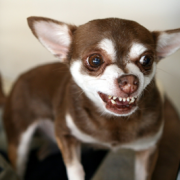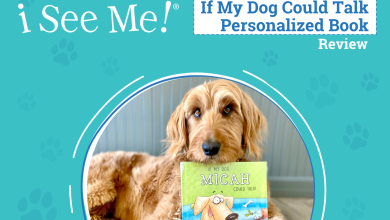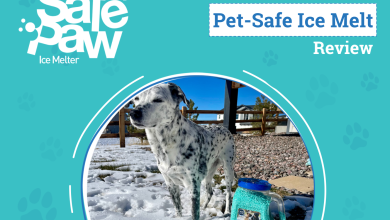
It’s commonplace for a canine to “defend” his territory, and for a lot of, it’s an inherent trait. Some breeds appear extra liable to this conduct— in my expertise— together with canines bred for guarding like mastiffs and a few herding and terrier breeds. Sadly, many canines take this conduct to an excessive stage, which may result in severe points. A canine that feels he should aggress and chunk strangers coming into the yard or into the home has the potential to trigger hurt to folks, resulting in uncomfortable company, lawsuits, or worse. Happily, by understanding what drives your canine to this conduct, you may appropriate it.
Why do I’ve an aggressive canine?
In case your canine is growling and barking at company, you’re most likely discovering your self with a heightened sense of tension. Needless to say your canine is just not comfortable on this frame of mind both. Canines show this conduct because of worry and/or anxiousness, and want behavioral intervention to beat it.
Canines that aggressively defend “their” territory are sometimes canines that weren’t socialized as puppies1 and have a worry of novel issues, folks and animals. What could look like a benign customer to your yard, such because the mailman, could be perceived by the unsocialized canine as an excessive menace and the canine will act aggressively to guard himself.
Aggression usually doesn’t manifest immediately and customarily begins to indicate because the canine strikes into maturity. In accordance the ASPCA and AHAA, this may be wherever from one to 3 years of age relying on the scale and breed/breed mixture of canine. With any conduct, notably one involving poor socialization and worry, the earlier you present behavioral intervention, the higher.
What can I do about my aggressive canine?
If in case you have a canine that’s appearing aggressively towards guests to your own home or property, it’s important that you simply seek the advice of a certified conduct skilled instantly. Catch it early in case you can– in case your canine seems uncomfortable, anxious, stiff, or is growling, then search assist earlier than the issue escalates. Your first step ought to be a session along with your veterinarian. Says Licensed Canine Habits Guide Don Hanson, CDBC, CPDT-KA, BFRAP of Inexperienced Acres Kennel (Bangor, ME), “I stress to shoppers that it is very important be frank with their veterinarian about any and all conduct issues. I ensure that the house owners perceive that any underlying medical difficulty contributing to the canine’s conduct should be addressed first, for me to have the ability to assist them.”
How can I discover a behavioral professional for my aggressive canine?
It’s extraordinarily vital to discover a conduct skilled who’s effectively versed in coping with canines with severe conduct points and who makes use of scientifically legitimate strategies.
When on the lookout for a conduct marketing consultant, make sure that the skilled you select is credentialed, receives common persevering with training, and can work along with your veterinarian and also you to develop an efficient therapy plan that’s protected for you and your canine.
Your veterinarian might be able to make a wonderful referral, however you can too search for somebody by way of the next respected organizations: The American Faculty of Veterinary Behaviorists, the Animal Habits Society, and the IAABC. In case your veterinarian feels {that a} veterinary behaviorist is the most suitable choice in your canine, many will work remotely in partnership along with your veterinarian.
What’s going to a behavioral professional do for my canine?
Within the case of a canine with territorial aggression, your marketing consultant will first wish to ensure that guidelines for security and administration are in place so nobody will get harm. This can be as delicate as protecting the canine crated when guests arrive, or as sturdy as really boarding the canine elsewhere if he presents an actual hazard to others. Knowledgeable ought to be capable to clarify to you the method so you’re feeling snug with it. Says Hanson, “I clarify the distinction between coaching and conduct modification and the way the aim of the latter is to alter the way in which {that a} canine feels in a given scenario. The overwhelming majority of aggression instances that I see are primarily based in worry, so resolving the canine’s anxiousness is a key to ending the aggressive response.”
Each program developed for a canine is totally different and primarily based on the canine’s historical past and wishes. Usually, it’s going to contain desensitization and counter conditioning to folks coming into the canine’s territory, coupled with coaching the canine to go to a specified place, resembling a crate or a mat, when the scary individual arrives1.
What can my veterinarian do for my aggressive canine?
Relying on the canine, your veterinarian could prescribe treatment to assist with the canine’s anxiousness which permits the behavioral modification program to be simpler if the canine was beforehand too pressured to perform. Different interventions could embody elevated train and psychological enrichment for the canine, extra gear resembling head halters, muzzles, and administration strategies could also be useful to not solely preserve folks protected, but in addition to cut back the canine’s capability to work together with what scares them.
It’s vital to know that whereas your canine’s conduct could seem disturbing and even horrifying to you, the best method to assist your canine is to work with certified professionals and decide to following the plan they’ve created for you. In response to writer and veterinary behaviorist Dr. Karen General, MA, VMD, PhD, of all of the components concerned within the profitable decision of a conduct case, “consumer compliance often is the most important2.”
In different phrases, the extra effort and dedication you give to working by way of your canine’s points, the upper the chance that your canine’s conduct will enhance. Canine aggression is rarely actually “cured,” however you may assist your canine really feel extra snug with others coming into his territory.
Assets
- Lore I. Haug, DVM, MS, DACVB, Territorial Aggression in Canines, Clinician’s Transient, April 2014, http://www.cliniciansbrief.com/websites/default/recordsdata/attachments/Territori…
- General, Karen. Medical Habits Medication for Small Animals, Mosby, 1997, p. 128.



